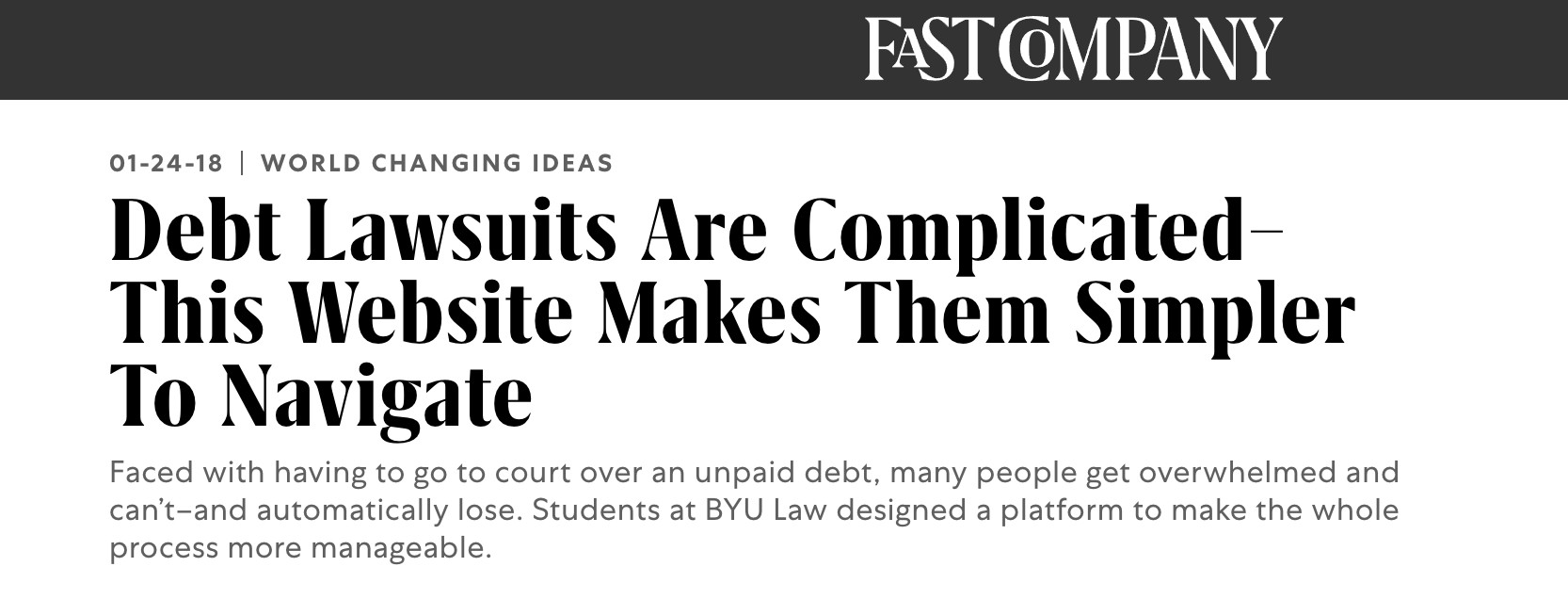Have you been contacted by Cavalry Portfolio Services and are unsure why? You’re not alone. It’s common to be surprised when a company like Cavalry SPV I LLC claims you owe them money, especially if you don’t recall directly engaging with them. This is because Cavalry Portfolio Services, often abbreviated as Cavalry SPV, operates as a debt buyer. They purchase debts, often credit card debts and loans, from original creditors at significantly reduced prices. This article will help you understand who Cavalry Portfolio Services is, your rights when they contact you, and how to effectively manage interactions with them.
Who is Cavalry Portfolio Services?
Cavalry Portfolio Services, also known as Cavalry SPV I LLC, is a major player in the debt collection industry. They specialize in buying debt portfolios from original creditors such as credit card companies, banks, and other lenders. These debts are typically “charged-off” debts, meaning the original creditor has written them off as a loss after a period of non-payment. Cavalry buys these debts for pennies on the dollar and then attempts to collect the full amount, or a substantial portion of it, from the consumer. This business model allows them to potentially profit significantly if they are successful in collecting on these debts.
If you are receiving calls or letters from Cavalry Portfolio Services, or if you’ve been served with a debt collection lawsuit by them, it’s crucial to understand that they are not the original company you owed money to. They have acquired your debt and are now attempting to collect it. Recognizing this distinction is the first step in effectively addressing the situation.
It’s important to note the correct spelling: Cavalry, not Calvary. Paying attention to details like this can be important when dealing with legal matters related to debt collection.
Your Rights When Cavalry Portfolio Services Contacts You
The Fair Debt Collection Practices Act (FDCPA) is a federal law in the United States that protects consumers from abusive, deceptive, and unfair debt collection practices. This law applies to debt collectors like Cavalry Portfolio Services. Understanding your rights under the FDCPA is empowering when you are contacted by a debt collector.
Under the FDCPA, Cavalry Portfolio Services is prohibited from engaging in certain actions, including:
- Harassment: They cannot use abusive language, threaten violence, or call you repeatedly with the intent to annoy or harass.
- False or Misleading Representations: They cannot misrepresent themselves as attorneys or law enforcement officers, falsely claim that you will be arrested, or misstate the amount of debt you owe.
- Unfair Practices: They cannot add unauthorized fees or charges to your debt, or attempt to collect interest, fees, or other charges that were not in the original agreement or are not permitted by law.
- Communication Restrictions: They cannot call you before 8:00 a.m. or after 9:00 p.m. in your local time zone, or contact you at work if they know your employer prohibits such communications.
- Disclosure of Debt to Third Parties: They generally cannot discuss your debt with anyone other than you, your spouse, or your attorney.
If Cavalry Portfolio Services violates any of these provisions of the FDCPA, you have rights and may be able to take action against them. Documenting any instances of harassment or illegal collection practices is advisable.
Responding to a Debt Collection Lawsuit from Cavalry SPV I LLC
If you are served with a debt collection lawsuit by Cavalry Portfolio Services, it is imperative to take immediate action. Ignoring the lawsuit will not make it go away and can lead to a default judgment against you. A default judgment allows Cavalry to pursue collection actions such as wage garnishment or bank levies.
Here’s a step-by-step guide to responding to a debt collection lawsuit:
- Understand the Complaint: Carefully review the Complaint and Summons documents you received. Note the court, case number, and the deadline to respond. This deadline is typically within 20-30 days of being served, depending on your state’s rules.
- File an Answer: You must file a written Answer with the court by the deadline. The Answer is your formal response to the lawsuit, addressing the claims made against you in the Complaint.
- Deny, Deny, Deny: In your Answer, generally deny most of the allegations in the Complaint, especially the claim that you owe the debt and the amount they say you owe. This forces Cavalry Portfolio Services to prove their case.
- Affirmative Defenses: Include any applicable affirmative defenses in your Answer. These are legal reasons why Cavalry may not have a valid case against you. Common defenses in debt collection cases include:
- Statute of Limitations: Debt has a time limit for lawsuits, known as the statute of limitations. If the debt is too old, the lawsuit may be barred. Check your state’s statute of limitations for debt.
- Lack of Standing: Cavalry Portfolio Services must prove they own the debt and have the legal right to sue you. Challenge them to prove they have the proper documentation and chain of title for the debt.
- Mistaken Identity: It’s possible the debt is not yours, or there has been an error in identifying you as the debtor.
- File with the Court and Serve Cavalry: File your Answer with the court clerk by the deadline and ensure you properly serve a copy of your Answer to Cavalry Portfolio Services or their attorney, as per court rules. Keep copies of everything for your records.
Filing an Answer is crucial to prevent a default judgment and gives you the opportunity to challenge the lawsuit and explore options for resolution.
Negotiating a Settlement with Cavalry Portfolio Services
Even after a lawsuit has been filed, settling the debt is often a viable option. Cavalry Portfolio Services, like other debt buyers, typically purchases debts for a small fraction of the original amount. This gives them room to negotiate a settlement for less than the full balance.
Here are tips for negotiating a debt settlement with Cavalry Portfolio Services:
- Be Proactive After Answering: After filing your Answer, contact Cavalry or their attorney to initiate settlement discussions.
- Start Low: A common starting point for settlement offers is around 25% of the total debt. Be prepared to negotiate and potentially increase your offer, but always start with a lower offer.
- Highlight Your Defenses: Mention any potential weaknesses in Cavalry’s case, such as statute of limitations issues or lack of documentation. This can give you leverage in negotiations.
- Lump Sum vs. Payment Plan: Debt collectors often prefer a lump-sum payment. If you can offer a lump sum, you may be able to negotiate a better settlement percentage. However, if you need a payment plan, propose reasonable monthly payments that fit your budget.
- Get it in Writing: Crucially, if you reach a settlement agreement, ensure you get it in writing before making any payments. The written agreement should detail the total settlement amount, payment terms, and a clear statement that upon completion of payments, the debt will be considered fully satisfied and the lawsuit will be dismissed with prejudice (meaning it cannot be refiled).
Negotiating a settlement can be a complex process. Tools and services like SoloSettle can assist you in managing settlement negotiations, tracking offers, and ensuring secure payment processing.
SoloSuit: Your Resource for Dealing with Cavalry Portfolio Services
Navigating debt collection, especially lawsuits, can be stressful and confusing. SoloSuit provides resources and tools to help individuals effectively respond to debt collection lawsuits and negotiate settlements.
SoloSuit offers:
- Answer Document Preparation: SoloSuit’s online platform guides you through the process of creating a legally sound Answer to a debt collection lawsuit. It helps you identify relevant defenses and ensures your Answer is properly formatted and ready to file.
- Debt Settlement Negotiation (SoloSettle): SoloSettle is a tool designed to facilitate debt settlement negotiations. It helps you send and receive settlement offers, track communication, and manage payments securely once an agreement is reached.
- Educational Resources: SoloSuit provides a wealth of information on debt collection, consumer rights, and legal processes, empowering you to understand your situation and make informed decisions.
By utilizing resources like SoloSuit, you can take control of your debt situation, respond effectively to Cavalry Portfolio Services, and work towards a resolution that protects your financial well-being.
Conclusion
Dealing with Cavalry Portfolio Services or any debt collector can be challenging. However, understanding your rights, knowing how to respond to a lawsuit, and being prepared to negotiate a settlement are key steps in managing debt collection effectively. Remember, you are not powerless. By taking proactive steps, utilizing available resources, and asserting your rights, you can navigate interactions with Cavalry Portfolio Services and work towards resolving your debt. Consider exploring tools like SoloSuit to assist you in this process and empower yourself to take on debt collection challenges with confidence.
 George Simons
George Simons
 Hannah Locklear
Hannah Locklear
 Patrick Austin
Patrick Austin
 Happy Familyalt=”A happy family enjoys tea in the morning, symbolizing peace of mind after resolving debt issues, relevant to Cavalry Portfolio Services article.”
Happy Familyalt=”A happy family enjoys tea in the morning, symbolizing peace of mind after resolving debt issues, relevant to Cavalry Portfolio Services article.”
 Fast Company Clippingalt=”Fast Company press clipping highlighting SoloSuit’s innovative approach to simplifying debt lawsuits, enhancing credibility for Cavalry Portfolio Services article.”
Fast Company Clippingalt=”Fast Company press clipping highlighting SoloSuit’s innovative approach to simplifying debt lawsuits, enhancing credibility for Cavalry Portfolio Services article.”
 NPR Clippingalt=”NPR press clipping featuring SoloSuit, reinforcing the website’s authority and helpfulness in debt resolution for readers of Cavalry Portfolio Services content.”
NPR Clippingalt=”NPR press clipping featuring SoloSuit, reinforcing the website’s authority and helpfulness in debt resolution for readers of Cavalry Portfolio Services content.”
